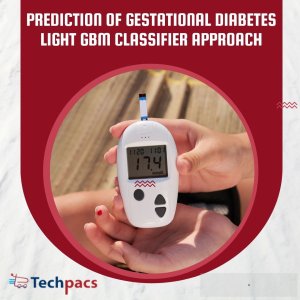Bi-LSTM Approach for Effective Cardiovascular Event Prediction with Infinite Feature Selection
Problem Definition
The existing literature on heart disease detection using deep learning methods reveals several limitations that need to be addressed. While researchers have developed models to detect cardiovascular diseases (CVDs) at early stages to reduce mortality rates, these models have shown drawbacks in terms of classifier compatibility for sequential data and adapting to changes in data due to noise. This has negatively impacted the overall performance and accuracy of the systems. Furthermore, there is a lack of emphasis on reducing the dimensionality of datasets, leading to time-consuming and complex detection procedures. These limitations highlight the need for a new and improved heart disease detection model that not only enhances accuracy levels but also simplifies the detection process and reduces processing time.
By addressing these key challenges, significant advancements can be made in early detection and prevention of heart diseases, ultimately improving patient outcomes and reducing healthcare costs.
Objective
The objective of this research is to develop a novel heart disease detection model that addresses the limitations of existing methods by utilizing Bidirectional Long Short-Term Memory (Bi-LSTM) and Infinite Feature Selection (IFS) techniques. The goal is to enhance accuracy, reduce processing time, and simplify the detection process by selecting only the most relevant features from the dataset and improving classification performance for sequential data. By combining Bi-LSTM and IFS in the proposed model, the aim is to create a highly accurate and efficient system for early detection of cardiovascular diseases, ultimately improving patient outcomes and reducing healthcare costs.
Proposed Work
In order to address the limitations of existing heart disease detection methods, a novel approach is proposed in this research that utilizes an advanced variant of Recurrent Neural Network called Bidirectional Long Short-Term Memory (Bi-LSTM). The focus of the proposed work is on improving the feature selection and classification phases in order to enhance the accuracy and efficiency of the detection system. By implementing an Infinite Feature Selection (IFS) technique along with the Bi-LSTM classifier, the goal is to select only the most relevant features from the dataset and improve the classification performance for sequential data. A publicly available dataset from UCI ML repository is used, which is preprocessed and normalized to remove empty cells and redundant data before applying advanced techniques.
The use of IFS in this method helps reduce the complexity of the dataset by selecting features based on their correlation and standard deviation weights.
This not only streamlines the feature selection process but also positions them strategically for effective CVD detection. The Bi-LSTM classifier is selected for its ability to remember past and future information across time, making it suitable for time-series predictions and sequence classification problems. By combining the IFS and Bi-LSTM techniques in the proposed model, a highly accurate and efficient heart disease detection system is achieved. This comprehensive approach aims to overcome the challenges faced by traditional methods and provide a more reliable solution for early detection of cardiovascular diseases.
Application Area for Industry
This project can be utilized in various industrial sectors such as healthcare, pharmaceuticals, and biomedical research. In the healthcare sector, the proposed heart disease detection model can assist doctors and medical professionals in accurately diagnosing cardiovascular diseases at an early stage, leading to improved patient outcomes and reduced mortality rates. In the pharmaceutical industry, this model can be applied in drug development research to analyze the effectiveness of new medications in treating heart conditions. Furthermore, in the field of biomedical research, the implementation of advanced deep learning techniques like Bi-LSTM can help researchers in analyzing large datasets to identify patterns and correlations related to cardiovascular diseases.
The challenges faced by industries in detecting heart diseases, such as the complexity of processing techniques, time-consuming procedures, and the need for accurate classification algorithms, can be effectively addressed by the proposed solutions in this project.
By incorporating features like infinite feature selection and the Bi-LSTM classifier, the model can significantly reduce the dimensionality of datasets, improve the accuracy of predictions, and handle sequential data efficiently. This, in turn, will lead to streamlined processes, faster decision-making, and ultimately, cost savings for industries leveraging this innovative heart disease detection system.
Application Area for Academics
The proposed project can significantly enrich academic research, education, and training in the field of heart disease detection using advanced machine learning techniques. By introducing a novel approach based on the Bi-LSTM classifier and infinite feature selection technique, researchers, MTech students, and PhD scholars can explore innovative research methods for improving the accuracy and efficiency of CVD detection systems.
The relevance of this project lies in addressing the limitations of traditional heart disease detection approaches by reducing the dimensionality of datasets and employing a more suitable classifier for sequential data. This not only enhances the performance of the detection system but also reduces the complexity and processing time involved in detecting CVDs.
The potential applications of this project in educational settings include conducting hands-on experiments with real-world datasets, implementing state-of-the-art machine learning algorithms, and analyzing the results for academic research.
By leveraging the code and literature of this project, field-specific researchers, MTech students, and PhD scholars can gain insights into the application of Bi-LSTM and infinite feature selection techniques for improving CVD detection methods.
Future scope of this project includes exploring additional research domains such as healthcare analytics, medical image analysis, and predictive modeling for cardiovascular diseases. By incorporating more advanced technologies and integrating diverse datasets, the proposed model can be further enhanced to achieve even higher accuracy in CVD detection and pave the way for future innovations in the field of healthcare research.
Algorithms Used
In order to enhance heart disease detection, the proposed method combines an Infinite Feature Selection (IFS) technique with a Bi-LSTM classifier. The IFS technique helps in selecting important features by calculating their correlation and standard deviation weights, reducing computational complexity. The Bi-LSTM classifier is chosen for its effectiveness in sequence classification tasks, recalling past and future information for time-series predictions. By integrating these algorithms, the proposed model aims to improve efficiency and accuracy in heart disease detection.
Keywords
heart disease, Cardiovascular disease, Recurrent neural networks, Deep learning, Machine learning, Feature selection, Infinite feature selection, Medical diagnosis, Predictive modeling, Risk assessment, Risk prediction, Health informatics, Electronic health records, Clinical data analysis, Biomarkers, Data mining, Healthcare analytics, Artificial intelligence, Precision medicine
SEO Tags
heart disease, cardiovascular disease, recurrent neural networks, deep learning, machine learning, feature selection, infinite feature selection, medical diagnosis, predictive modeling, risk assessment, risk prediction, health informatics, electronic health records, clinical data analysis, biomarkers, data mining, healthcare analytics, artificial intelligence, precision medicine, Bi-LSTM, heart disease detection, CVD detection, research methodology, RNN, LSTM, sequential data analysis, data preprocessing, UCI ML repository, computational complexity, time series predictions
| Shipping Cost |
|
No reviews found!



















































No comments found for this product. Be the first to comment!